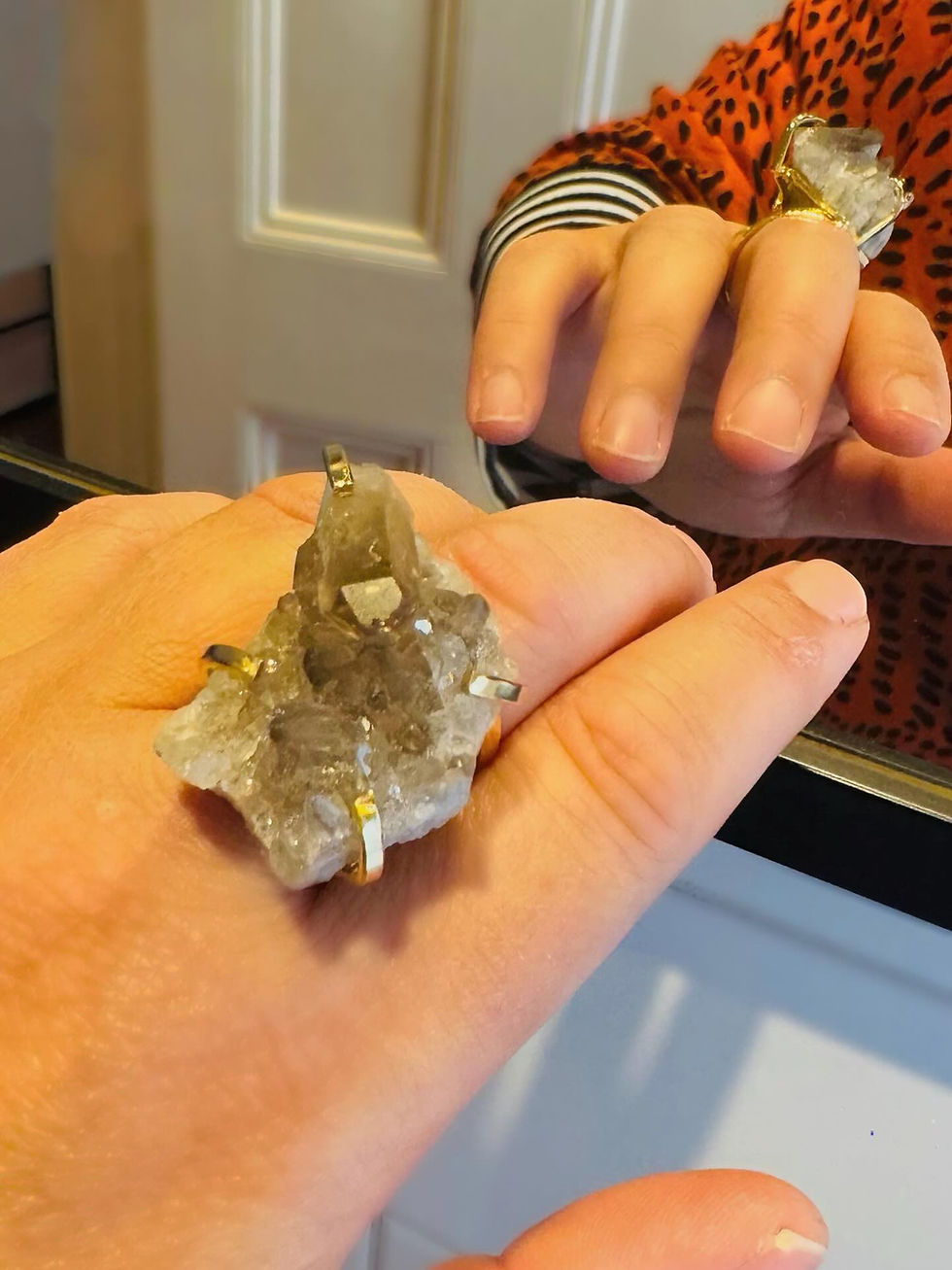WHICH IS BETTER, REIKI OR REFLEXOLOGY?
- Fiona Phillips | Certified Japanese Reiki Shihan (Teacher)
- Mar 22, 2024
- 4 min read
Updated: Apr 21, 2024

Reiki and reflexology are both popular alternative healing modalities offering distinct (yet often overlapping) approaches to promoting wellness and balance, each with its own set of benefits. When it comes to comparing healing modalities, I don't subscribe to language of better or worse, I prefer to look at this from a perspective of personal and healing preferences because every modality has something incredible to offer, it's simply a matter of which modality best suits your particular needs.
When looking at Reiki vs Reflexology, it is therefore vital to understand how each work, their respective philosophies and the differences between each.
Reiki, originating from Japan, is an energy healing technique where a Reiki Practitioner utilises universal, vital, life-force energy ('Reiki') to promote healing on a physical, mental, emotional and spiritual level. The underlying basis of Reiki healing, is that a Reiki Practitioner, who is attuned to the Reiki, channels the Reiki and connects the recipient to the Reiki by gently placing their their hands on various positions on the clothed body of the recipient. With a Higher Intelligence of it's own, Reiki goes to where the healing is most needed, aiming to restore balance and harmony within the body, mind, and spirit. Further, the recipient's body also provides an 'echo' of areas of stagnation or trouble, identifiable to the Reiki Practitioner through sensations in their hands, determining the areas that Reiki Practitioners focusses on.
Reflexology, like Reiki, is also a holistic therapy and it involves applying pressure to specific points on the feet, hands, or ears, known as reflex zones. These reflex points are connected to different organs and systems in the body, and by stimulating those point, recipients can experience tension-relief, improved circulation, and improved overall well-being. Some also say that recipients of Reflexology can experience relief from mental and physical ailments, perhaps in a similar way that acupuncture operates on the basis that stimulating certain organ systems and meridians can relieve mental and physical stagnation.
When it comes to Reiki vs reflexology, both offer valuable benefits, and so the choice between them often depends on individual preferences and wellness goals:
Holistic Healing:
Whilst both Reiki take a holistic approach to healing, Reiki addressing the whole person ( body, mind, and spirit) and aims to treat the root cause of imbalance and promote deep healing and personal growth which includes spiritual connection and healing. Reflexology, on the other hand, tends to focuses more on physical ailments and promoting relaxation through targeted pressure points.
Non-Invasive Practices:
As Reiki involves the gentle placement of hands rather than pressure points like Reflexology, some people find Reiki less invasive and a more subtle or gentle approach to their healing. For people who are more sensitivity to touch, they may find Reflexology uncomfortable or too intense.
Universal Energy vs. Reflex Zones:
Reiki taps into universal, vital, life-force energy which, because of its Higher Intelligence, does not rely on the determination of the Practitioner as to what healing is needed or where the Reiki should. Accordingly, Reiki will always goes to where it is most needed. Because reflexology works on the principle of reflex zones (connected to specific organs and systems in the body) it offers targeted relief which is dependent on where the Practitioner decides to apply the pressure.
Relaxation and Stress Relief:
Both Reiki and reflexology are incredibly effective in promoting relaxation and relief from stress. Because Reiki works on a spiritual and energetic levels, it can supports mental and emotional well-being in a way that may be more limited with reflexology. Yet there is no doubt that reflexology, through targeting tension, promotes a sense of calmness and relaxation throughout the body.
Complementary Practices: When looking a the question of Reiki vs Reflexology, it invites us to compare and contrast and find a winner. But Reiki and reflexology, rather than being pitted against each other, can actually beautifully complement each other in an overarching wellness strategy. Some individuals may choose to incorporate both modalities into their self-care routine, receiving Reiki for overall balance, whole-being healing and spiritual connection and reflexology for targeted relief of specific symptoms or conditions.
CONCLUSION: REIKI vs REFLEXOLOGY
I prefer not to engage in dualistic narratives about choosing one healing modality over another. The reality is, personal preference is key when choosing any form of healing therapy. It comes down to your personal healing goals and which method or philosophy you most resonate with and this could change over time and as you continue along your healing path. There is no such thing as better or worse, just different, and each modality deserves to be respected for everything each of them offer and they different approaches. Both Reiki and reflexology offer unique benefits and can be effective tools for promoting health and well-being. Whether you choose Reiki, reflexology, or a combination of both, you will be well supported your journey towards wellness, healing and inner peace.
If you have any questions, or want to chat to more about Reiki please contact me and we can arrange a time to chat. If you would like to book a Reiki session in Melbourne (or distance Reiki worldwide), you can book an appointment here or if you would like to learn Reiki yourself, sign up for Melbourne Reiki courses here. I look forward to connecting with you for Reiki!
Warmest,
Fiona x
Fiona Phillips
Certified Reiki Shihan (Teacher) and Practitioner
Komyo ReikiDo in Melbourne
Within The Space






Comments